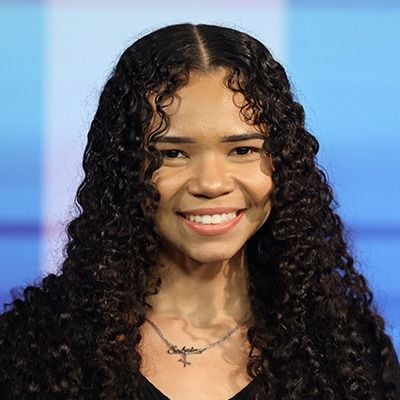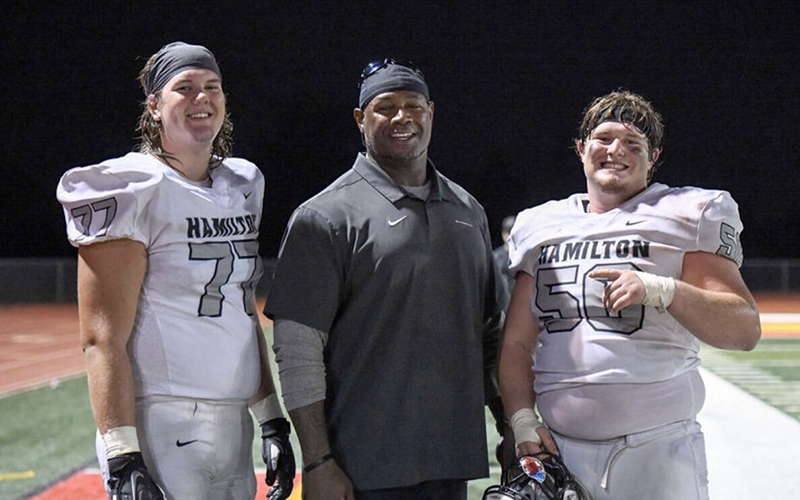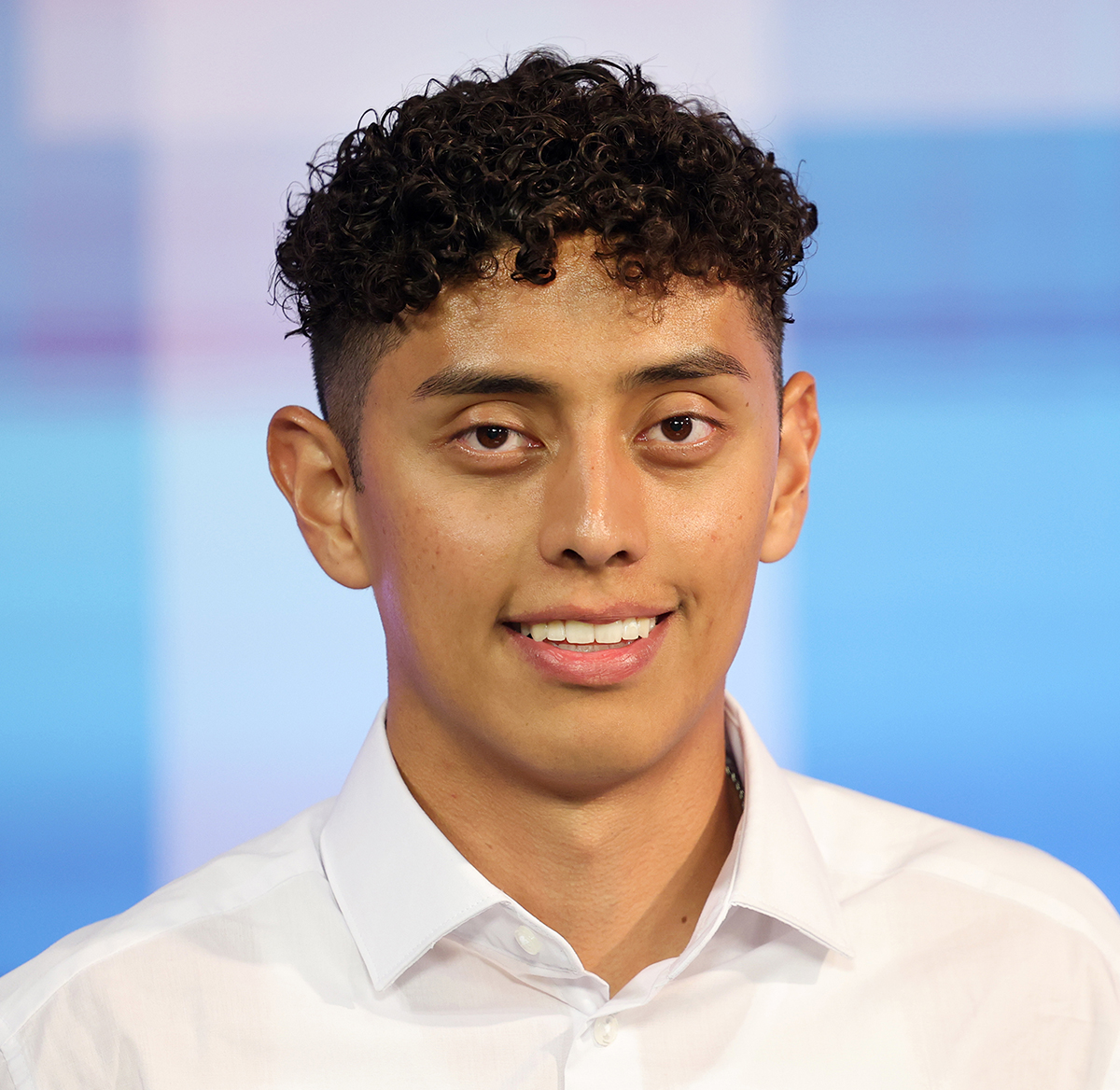PHOENIX – For some, the pressure of serving as a first responder is too overwhelming.
But for others, running toward danger instead of away from it is a life mission.
No matter the time of day, firefighters are ready to stop at any moment to serve their community. And some of them are even willing to accept more pressure to serve their communities in a different way.
Many firefighters in the Phoenix and Glendale fire departments also hold a second job title: high school football coach.
A brotherhood on the field and in the fire station
Sandra Day O’Connor football coach Brian Cole has been coaching for 33 years while also working as a firefighter since 1986 before retiring last July. He was a captain in the Phoenix Fire Department and around 30-40 of his former players have joined the fire department.
Cole, 63, has had at least a dozen assistant coaches who doubled as firefighters in total. He currently has five assistant coaches who are active members of the fire department.
“Every season I had high school guys come and do ride-alongs,” Cole said. “They wanted to hang out at the station, they wanted to go on calls, and so a lot of those guys that did are now on the fire department themselves. I would hope that I inspired some of them to get on the job and I’m pretty sure I did so it’s a cool thing.”
Sandra Day O’Connor defensive line coach Josh Brayer, 40, first met Cole at Mountain Ridge in 2001. Brayer played football and Cole was hired to the Mountain Lions coaching staff that same year.
Brayer’s head coach at the time, Jim Ewan, required his players to do a certain amount of community service, which included ride-alongs with Cole at the fire station. The senior took advantage of the option at the time – and never looked back.
“That’s where I fell in love with firefighting,” Brayer said. “I saw the similarities between the locker room, the preparation, the game, getting out there and being dependent on the guys next to you.”
As Brayer went on to play football at Arizona State, he and Cole kept in touch and their friendship developed over the years. After finishing his football career, he wanted to bring his knowledge back to the high school level to influence students who wanted to follow a similar path.
Brayer joined the fire department in 2004 and started his first year of coaching a year later with Cole at North Canyon High School. He watched Cole’s children grow up and eventually had the opportunity to coach them in high school.
“He’s a friend,” Brayer said. “He’s a mentor, he’s a good man, he’s someone I’ve looked up to for a long time. I’ve been on fires with Brian and I’ve been in championship games with him and the guy doesn’t get rattled.
“He always has a plan. He’s a guy I know I could pick up the phone anytime and he’d be right there.”
Brayer, however, isn’t Cole’s only former player who currently coaches and works in the fire department.

Mark Tucker’s transition from NFL stardom to firefighter-coach serves as a powerful testament to his influence. “It’s challenging at times,” he said. (Photo courtesy of Mark Tucker)
Sandra Day O’Connor linebacker coach Josh Petrucci met Cole long before they coached together on the sidelines.
Petrucci, 41, comes from a family of firefighters between his uncle, father, cousin and two brothers, and it had been his dream job since he was a kid. In 2005, he joined the Phoenix Fire Department with the goal of eventually becoming a captain – and that goal is now his reality.
And Petrucci sees parallels between his profession and coaching.
“I had some really good captains early on in my career that made a big difference in my life,” Petrucci said. “Very similar to that of a football coach. A mentor, someone you can go to, someone that challenges you, holds you accountable and responsible.”
Petrucci trained with another one of Cole’s coaches in the academy at the same time. When he was hired to work at Station 42, his dad had worked there for over 10 years and Cole was a captain.
Cole recruited Petrucci to play for his program at Phoenix College. Fast forward a few years later, and Petrucci joined the same fire station as Cole in an act of fate.
“Hey, you ever thought about coaching?” Cole asked Petrucci one day.
The topic of football was a constant at the fire station. The Phoenix Fire Department had a football team in the fire department public safety league, and Petrucci played on the team while Cole coached.
Petrucci began coaching on a volunteer basis with Cole at North Canyon High School and immediately fell in love.
“It was something at that time in my life, it was something I really needed,” Petrucci said. “And something that I’m really thankful for.”
Petrucci has worked with Cole for about 16 years and despite the opportunities to coach at high schools closer to his house, he remains loyal to Cole.
Petrucci said Cole understands the challenges of being a coach and a firefighter, they take care of one another and have a mutual understanding when Petrucci can’t leave the station to attend practice.
“He’s definitely been a mentor to me and been a consistent figure in my life, during both my career as a fireman and as a coach,” Petrucci said. “I see him every about four to five months out of the year. We’re together almost every day, a couple hours a day. He knows me, I know him. I got to coach his kids, and he knows my kids and welcomes my kids at practice.”
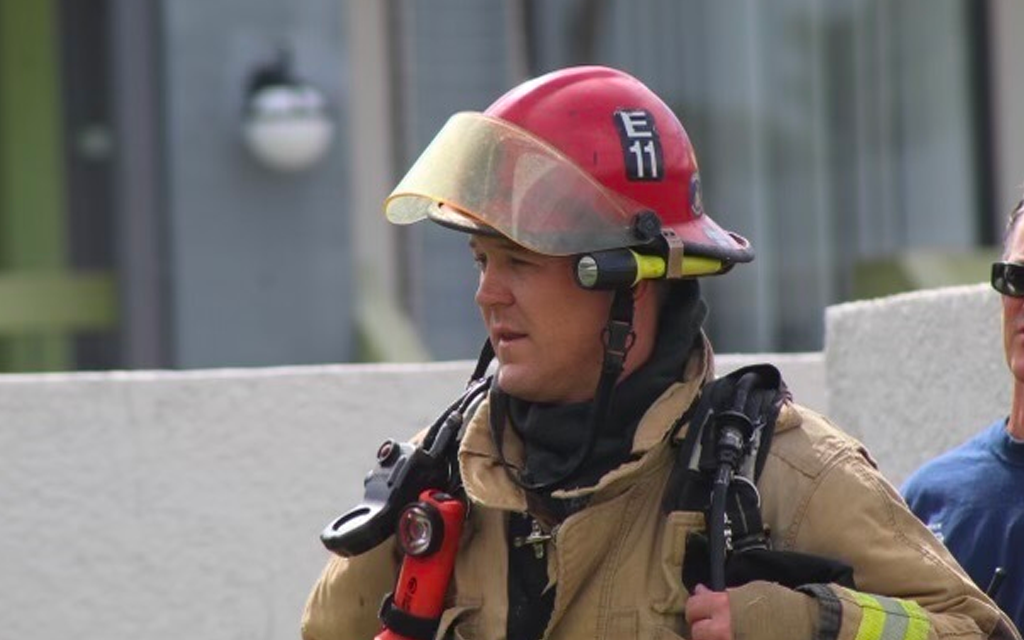
In the lives of young athletes and future firefighters, Josh Petrucci stands as a mentor and a father figure by providing lessons on the football field and in the firehouse. (Photo courtesy of Josh Petrucci)
Parallels between coaching and the fire department
The similarities between coaching and firefighting come down to athleticism, preparation, mentorship, leadership and a family dynamic.
And another word that each coach and firefighter mentioned is comradery.
Mark Tucker, an offensive line coach for Hamilton High School, played football at USC before the Atlanta Falcons drafted him in 1991. Throughout his six years in the NFL, he played on the Indianapolis Colts, Arizona Cardinals, Jacksonville Jaguars and overseas for NFL Europe. He later joined the Arizona Rattlers and played another 10 years in the arena game.
Tucker, 55, is currently in his 25th year as a coach at Hamilton, but he also works as a firefighter and a substitute teacher. He joined the fire department in 2012, after multiple friends joined, and ignited a spark to pursue the career.
Due to the flexibility of a firefighter’s schedule, coaching a high school football team, although time-consuming, is doable. In Phoenix, firefighters work 24 hours straight and then have 48 hours off.
“It’s challenging at times,” Tucker said. “Just the whole managing time, but I’m only a football coach for, in the grand scheme of things, 12-13 weeks. Offseason is a little bit different because the time and demand is not there. So the only time it’s really crucial is just during the season, but otherwise it’s just something I’m used to doing. I’ve gotten accustomed to running that schedule.”
Cole said although the schedule can be tricky, his captains were always understanding and time management became easier once he became a captain himself.
“Especially when I got a crew that knew I was coaching football,” Cole said. “And they knew I was going to be gone for a couple of hours on days when I was on shift. A lot of my crew ended up being players I’d coached and they got on the job and worked for me.”
For Petrucci, the balancing act of time management comes with him being a dad of two young kids. Between his children’s sports, supporting his wife in her endeavors, coaching, firefighting, watching film and game planning – there are plenty of long days.
“My kids love coming to practice and games with me,” Petrucci said. “My wife’s very supportive. These guys are awesome. They’re supportive, they’ll get in here and watch film with me sometimes. So we’re really lucky on that front.”
As firefighters have been called “industrial professional athletes,” according to Petrucci, the athleticism required to perform the role is a significant reason why ex-athletes and coaches join the fire department.
“I think a lot of the athletic skills and the way you train as a football player translates really well to the fire service,” Petrucci said. “I mean I know when I got hired I just kept doing what I was doing to get ready for football season, I treated it like a preseason again.”
Cole said the adrenaline rush he gets from playing and coaching sports is the same feeling he gets from jumping off the truck and going into a fire. Just as he would prepare the game plan for a Friday night game, firefighting isn’t any different.
“Out on the football field, it’s one thing. If you don’t prepare and you don’t get ready to play the game, you’re going to get your butt kicked, you’re going to lose,” Cole said. “Fire department’s a little bit more serious – if you don’t train and you don’t prepare for certain things, things can go wrong really fast. I think preparation in both things is just super important.”
Brayer said the locker room and team mentality, along with the preparation, models what’s seen on the field in the fire department. In both careers, they have to prepare to go up against an opponent, except in the fire department, they never know who that opponent is or when it could come.
Building trust is important in both careers because they don’t want to let the guy next to them down, Brayer said.
“We don’t know what that next call is going to be,” Brayer said. “You don’t know what that next down is going to be on the football field. They say the devil’s in the details … in the preparation.
“We try to simulate that (certain skill sets) in training, to put the most realistic scenarios that we can so when the real event happens we’re prepared and we know how to think, react and foresee what’s going to happen next.”
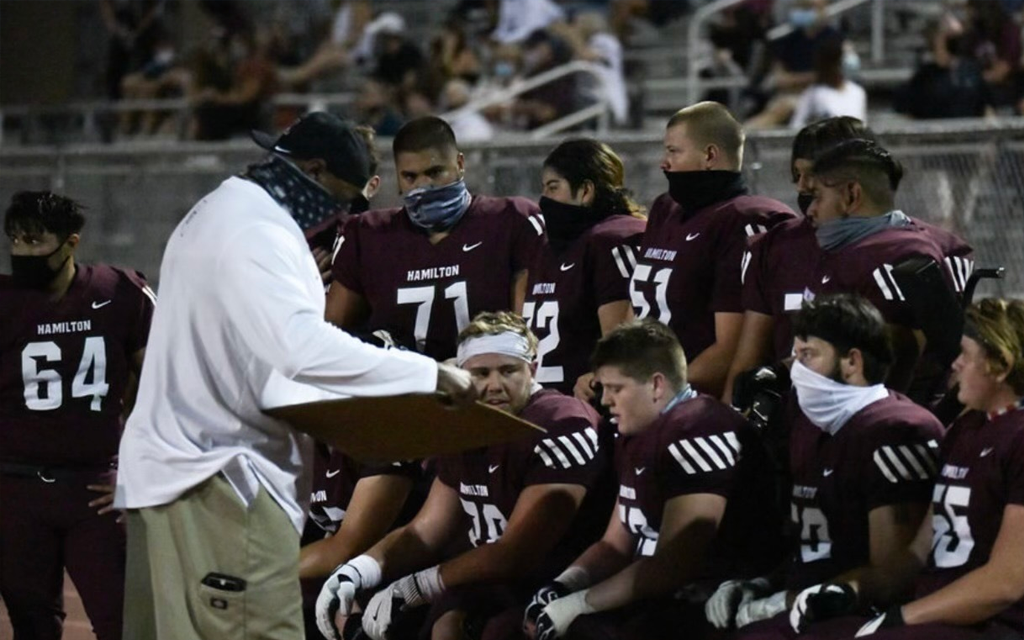
Mark Tucker, the former NFL player who transitioned into a firefighter-coach, continues to inspire the next generation with his journey from the pros to coaching high school football. (Photo courtesy of Mark Tucker)
A home away from home
Being an athlete is important, but it’s not the only reason why many former athletes and coaches join the fire department. The relationships and bonds at the fire station mirror the coach-player and team relationships.
“The fire station and particularly being a football player, they love former athletes,” Tucker said. “Because you already have a natural feel for what it’s like in regards to teamwork and comradery, they both encompass each other as far as brotherhood.”
As firefighters who are former athletes, they don’t miss practice, feeling sore or the daily grind. They do miss, however, the locker room, the relationships, the comradery, the family atmosphere that comes along with being on a team.
“My station is really no different than the Cardinals locker room when I played for the Cardinals,” Tucker said. “It’s the same thing. We have fun, we joke, but the fire department is different. We go shop for lunch and dinner, we train together, you spend 24 hours with a person.”
When asked about Petrucci’s relationship with the men at his station, he had to keep himself contained.
“Oh man, I don’t know if I can not get emotional from it. They are literally my family,” Petrucci said. “They’re a home away from home. We celebrate birthdays and kids’ birthdays and holidays together. We’re around each other for a third of our life and the harsh reality is we depend on each other.
“They need me to be the best I can be and I need them to be the best that they can be. And our goal at the end of every shift is to send everyone home safe to their family.”
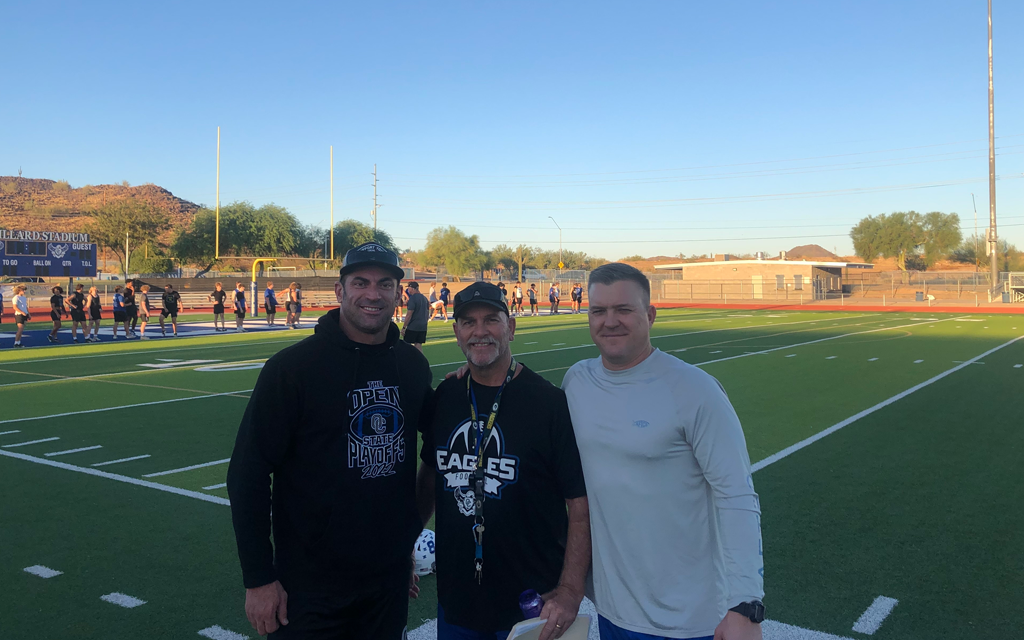
Josh Brayer, left, Brian Cole, center, and Josh Petrucci showcase their unwavering commitment to young athletes and aspiring firefighters. (Photo courtesy of Josh Petrucci)
The mentor-mentee relationship
The leadership and mentorship a coach provides to his players coincide with the leadership at the fire station between veteran firefighters/captains and the men who have recently joined.
Tucker said he had recently helped a younger man at the station who wanted to take the engineering test. Because Tucker is an engineer and has been in the department for 11 years, he was able to give insight into his experiences. Tucker has also had captains and chiefs coach and teach him as a mentee.
“There’s always younger members that come along behind you,” Tucker said. “You’re a mentor, you’re a teacher, there’s so many similarities in regards to the relationships that you form with your crew at the station. The same kind of relationships I forge with my players and the kids out here. Helping them navigate through not just the profession, but there’s a lot of personal stuff that comes into play.”
The most gratifying byproduct of coaching for Tucker is watching guys mature from being boys to becoming men. His positive mindset, patience and genuine interest in embodying a father figure role are important qualities he holds that are helpful in both careers.
Petrucci said through both careers he has learned to communicate, motivate and relate to people from all walks of life. Like Tucker, the most rewarding part of his time at the station and coaching is seeing young men grow and develop. From being that consistent uplifting voice to his players with low confidence to seeing men who have never touched a firehose make it through the training academy and become a firefighter, his work on and off the field is fulfilling.
“You’ve got to lead by example,” Petrucci said. “You’ve got to show your players, kids that you care. That you’re there for their betterment and their well-being to keep them safe, to guide them, mold them. Just help guide young men and young people and help them maybe not make the mistakes you made early in your career or your life.”
“I genuinely care about young people. I care about our future, I care about the young people here that I work with, I care about the men and women I work with. You have to be selfless, both as a coach and as a firefighter and as a captain.”
Parker Munier, a senior middle linebacker at Sandra Day O’Connor, has developed a special relationship with Petrucci for over two years.
“He’s like a second kind of father to me,” Munier said. “He’s there for me when I need him, whenever I have a question or I need life advice, I always go to him. … He knows the lifestyle, like the guidance for it.”
Trace Teague, a senior defensive tackle for Sandra Day O’Connor, has been coached by Brayer for the past three years and trusts his guidance on the field and in life.
And the player-to-firefighter pipeline is still wide open – Teague wants to be a firefighter when he’s older to help people and because it’s an active job.
Brayer has taught Teague that if he’s going to make a mistake, make the mistake while giving 100%.
“I love working with these guys, I love mentoring them,” Brayer said. “Seeing them be successful in life whether it’s moving on to a career in firefighting or into college or whatever it is…It’s just fun to see these guys develop and grow.”
Brayer’s senior crew at his special operations Glendale fire station have all known each other for about 18-20 years. He said he still loves coming to work every day, even 19 years into his career.
“It’s a home away from home,” Brayer said. “We can show up on a fire, I don’t have to tell these guys what to do, they know what to do. I can send them to work and I can just watch it happen and support them and see what needs to go on and perform my function.”
“I’ve heard people say that we’re the first and last line of defense for our community,” Brayer said. “People call 911, we show up. If we can’t solve their problem, who is? The gravity of that responsibility, we don’t take lightly.”
